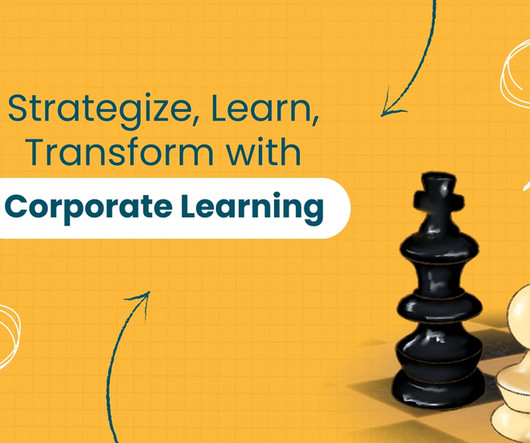This Is What I Believe About Learning in Organizations
The Performance Improvement Blog
SEPTEMBER 14, 2018
But none of this is possible without learning. At its core, any high performing organization is about learning; continually using new information to become smarter, better, and more effective. Data indicates that less than 20% of participants apply learning from formal training programs. Manager’s Role is People.










































Let's personalize your content